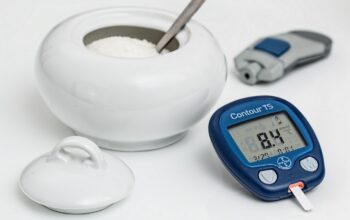Treating alcohol use disorder can be challenging, with different people requiring particular care.
For some, it is enough to treat their symptoms without addressing the root of why they drink in the first place. But, for others, there is a need to emphasize recovery and educate them about how drinking affects future sobriety.
Some rely solely on detox as treatment, while others may require psychotherapy or medication; this depends on where you fall within the AUD symptom range.
Moreover, many people with AUD become dependent on alcohol and have withdrawal symptoms when they suddenly stop drinking.
The effects of detox can be dangerous, which is why it’s essential for those who struggle to address their issue as soon as possible after ending indulgence to avoid complications such as anxiety or psychosis from severe dehydration.
Are you looking for a place to detox alcohol safely? Rehab Clinics may be the answer. They provide top-notch care in an environment with educated staff every step of the way.
From determining if this is something worth trying (and how) until after treatment has ended and patient maintenance begins.
What is Detox?
People dependent on alcohol often experience withdrawal symptoms when they stop drinking. Due to the fact that detox alone cannot be treated, it is essential to recognize the early signs of illness.
It can be utilized to get better for yourself or your loved one before things get worse. The first step should constantly be detoxing to effectively recover from your addiction.
This may end the wait around with no idea what will happen next because there may come a time after which nothing else seems capable anymore due to the detox process.
When a person abruptly stops drinking, they might experience symptoms of detox. These include:
- Headaches
- Feeling sick to your stomach or vomiting
- Sleepiness (especially if you had been awake all day)
- Sweating more than usual
- Racing heart rate
- Tightness in the chest
Why start with detox for alcohol recovery?
In some cases, alcohol withdrawal can be uncomfortable and even dangerous. Achieving sobriety may seem like a daunting task when one has been dependent on their favourite tipple for so long.
Many tools at our disposal will help us through this challenging phase in recovery – especially if we take them one step at a time.
The most basic of these treatments is called “detoxification.” This means getting rid of or cutting back on the amount you drink over time until it becomes less appealing altogether.
Then things start looking much brighter because every little bit counts towards success (and staying clean). You can see here how to alcohol detox safely without threatening your life.
Kiths and Kin of Alcohol Detox
It can provide many benefits, including relief from withdrawal symptoms and cravings. Detoxing may also reduce risk factors associated with various diseases like heart disease or diabetes. It improves your body’s ability to fight infection due to allergen exposure during active addiction.
It may lead you to be more susceptible than usual when trying something new such as drinking again after getting sober because now anything will seem extraordinary.
A lot has changed since we researched this article, but one thing remains true: if diagnosed early enough, then there is hope—even miracle recoveries can happen.
Alcohol has lasting effects on both the mind and body. The first step to overcoming these problems is usually a detoxification program.
It helps you get rid of all traces so that pesky creditors won’t achieve their goal by taking unfair measures against those with disorders.
Problem drinkers or addicts who abuse this banned substance often do due to its psychoactive properties. The purpose here was simply to provide some information related to alcohol detox.
Moreover, when alcohol is physically eliminated from the body, it leaves behind toxins harmful to your overall well-being.
These adverse effects can include depression or anxiety and memory loss which could lead you into a state called ” blackout.”
Toxins build up in our systems when we drink too much over time. So, try to maintain the intake to support the best results.
Detoxification Types
The different kinds of detoxification programs can be broken down into two basic categories: Inpatient and outpatient.
The first option, being institutionalized at a hospital or clinic throughout your process, will give you round-the-clock care from medical professionals as well as family members.
Their knowledge of addiction treatment theory makes them qualified to offer critical input. Rehabilitation therapy is used to support the health of the patient after withdrawal symptoms subside.
While this type provides stability during challenging times, there may still be feeling like amelioration, where things seem better than before.




